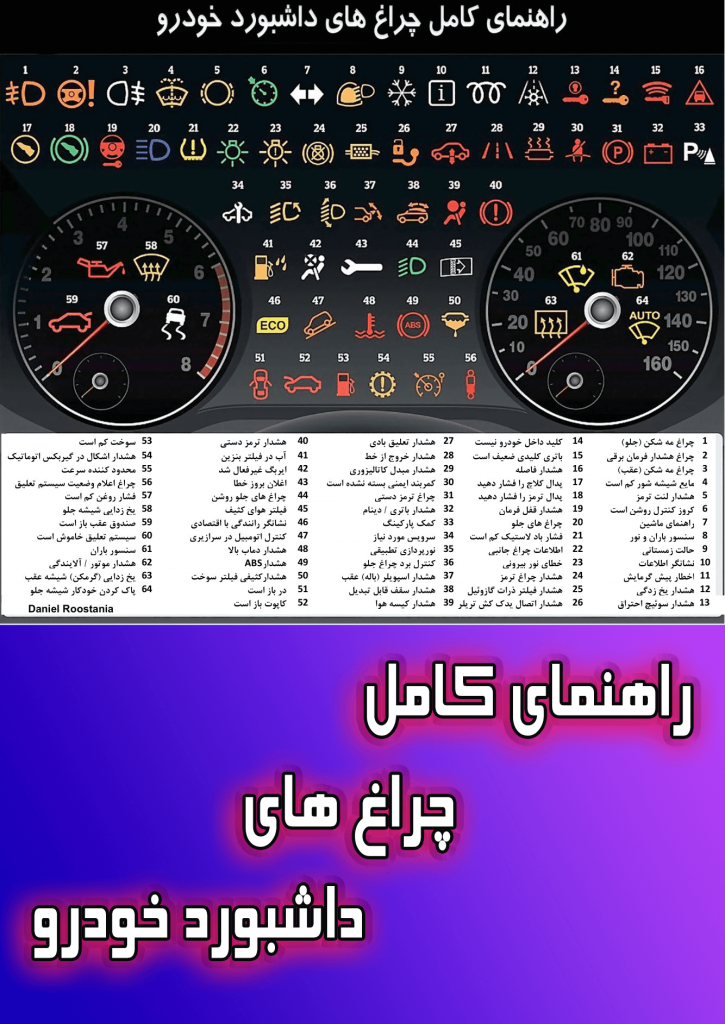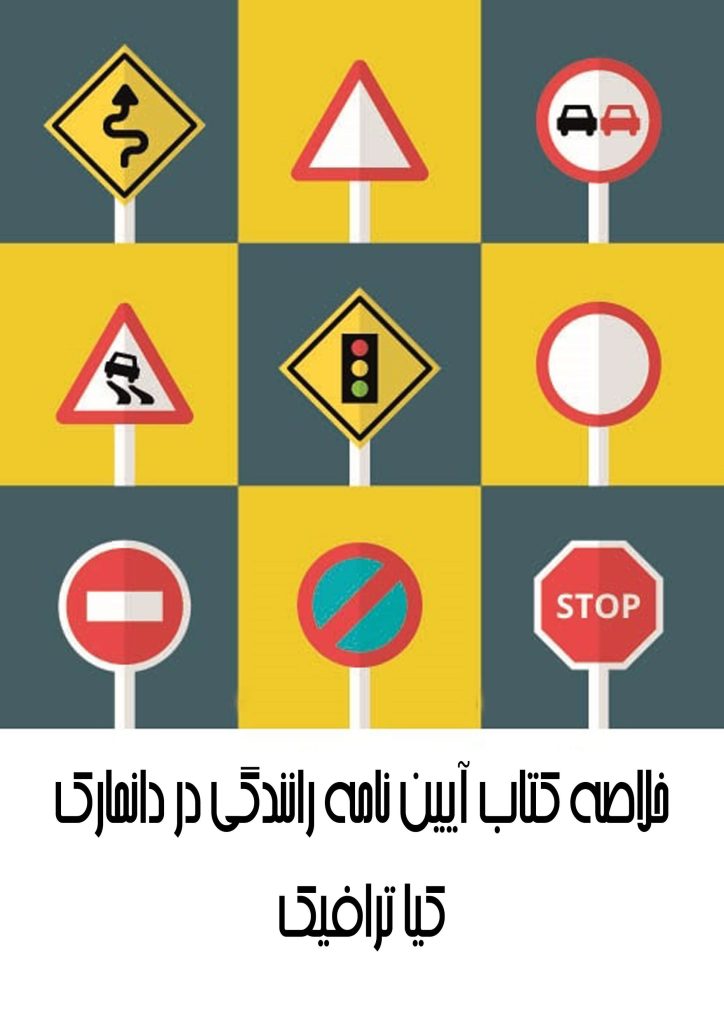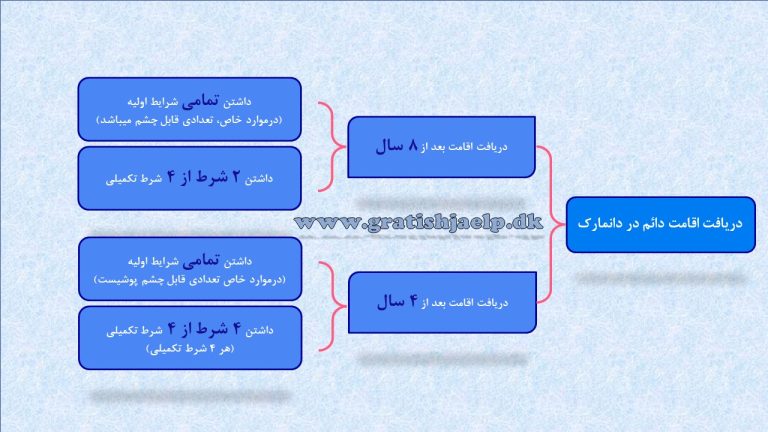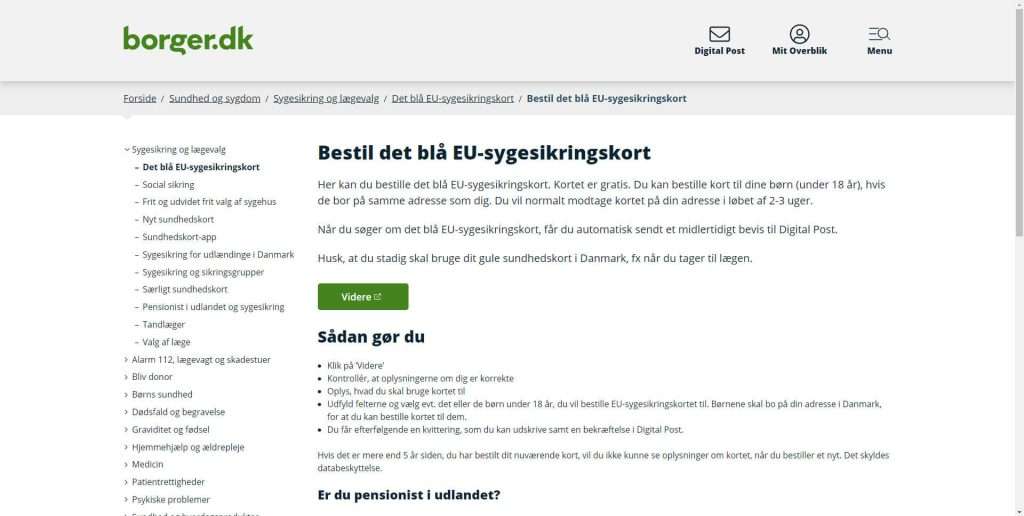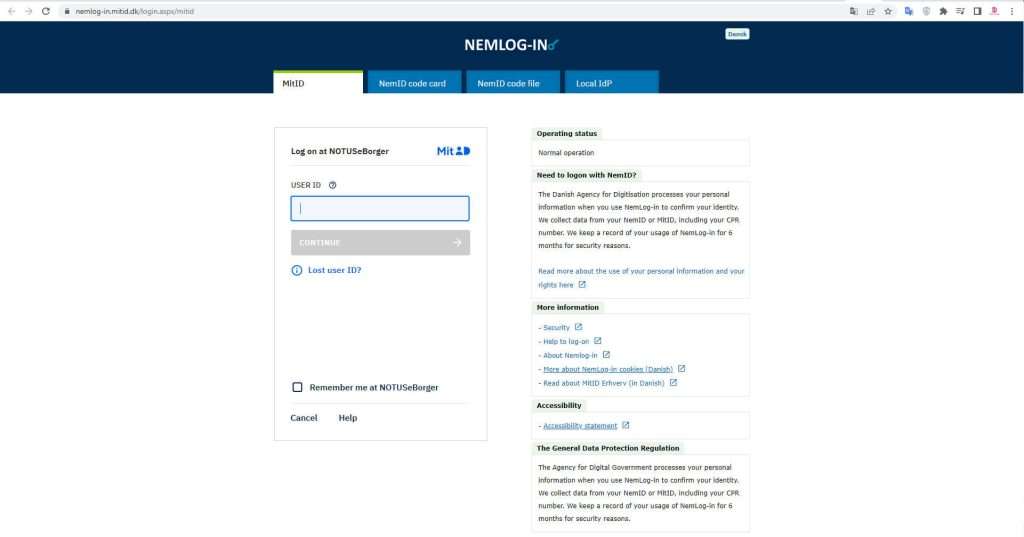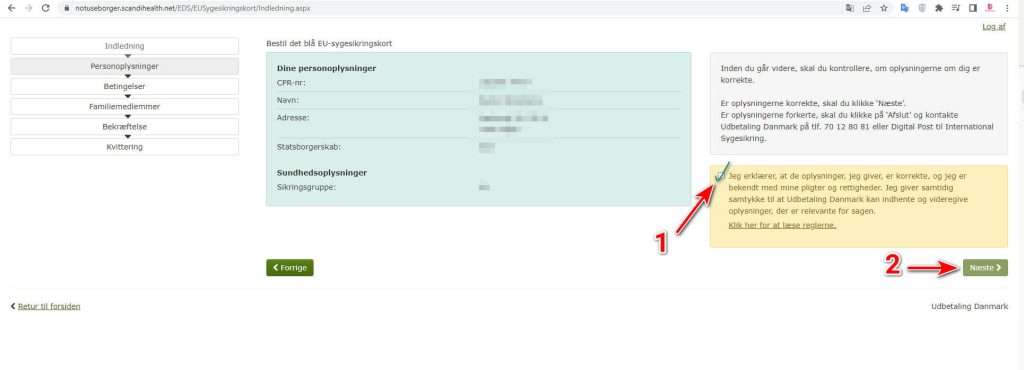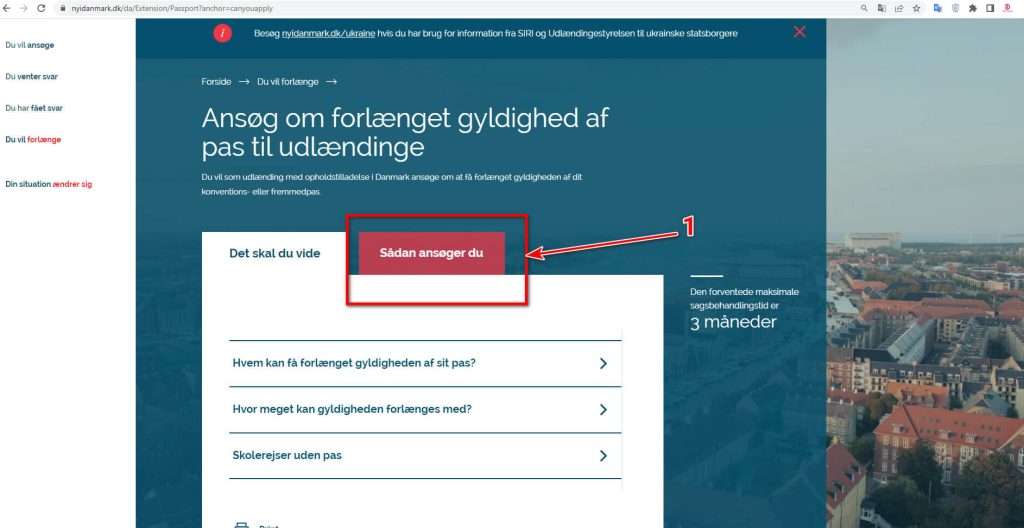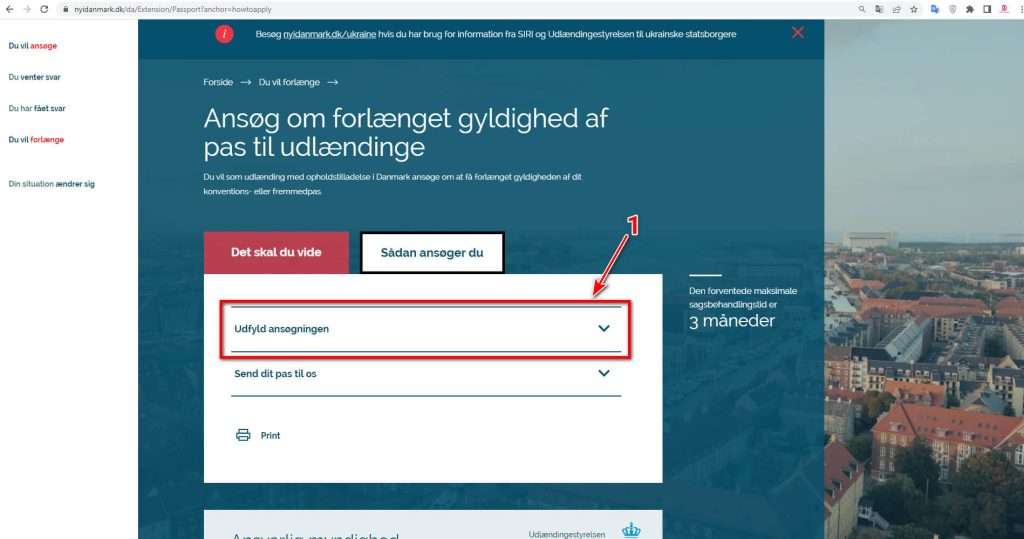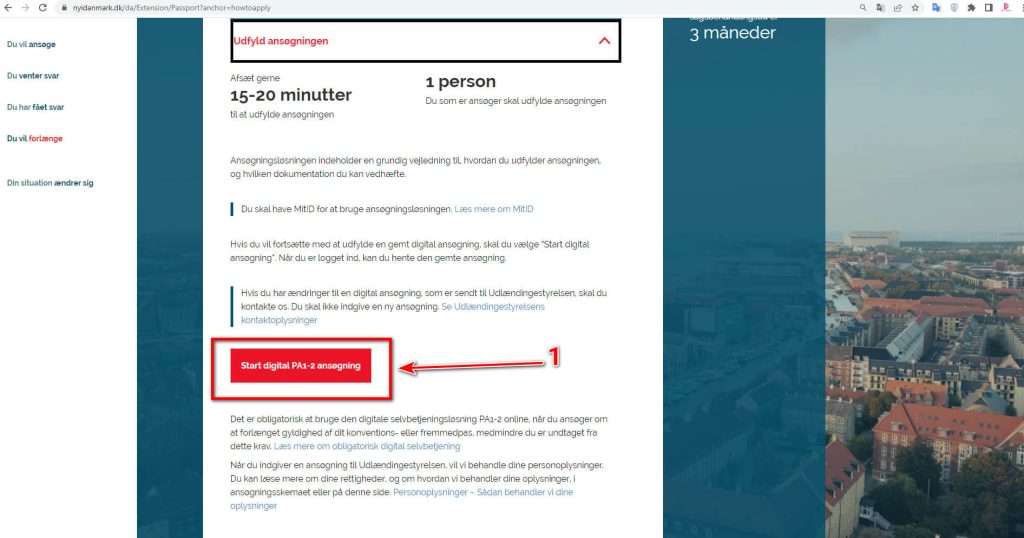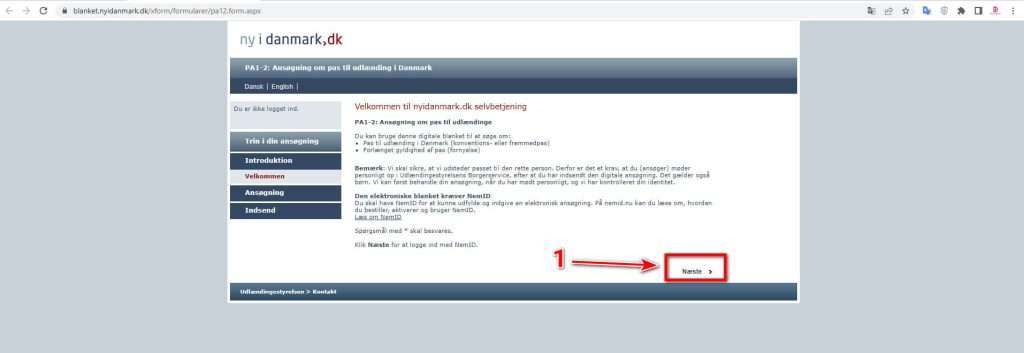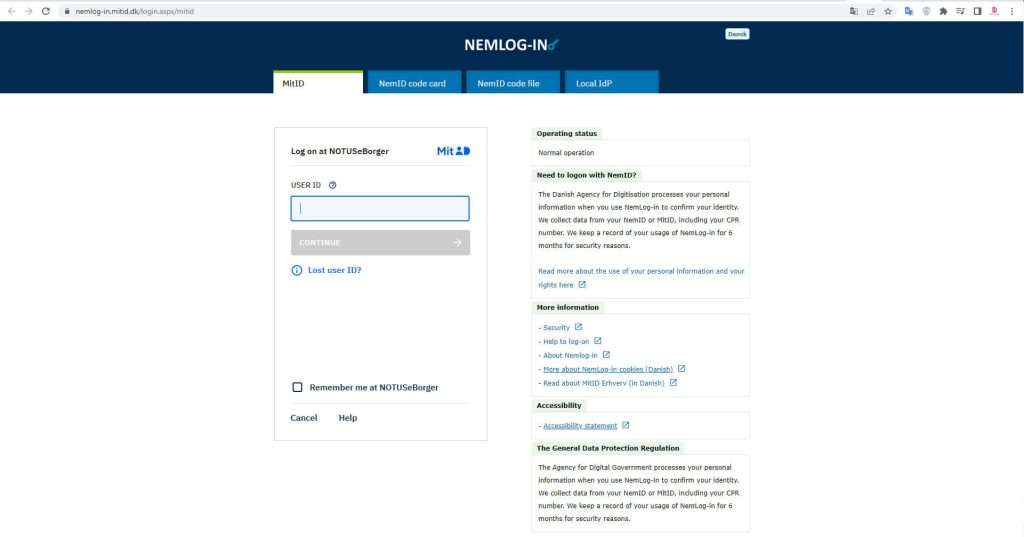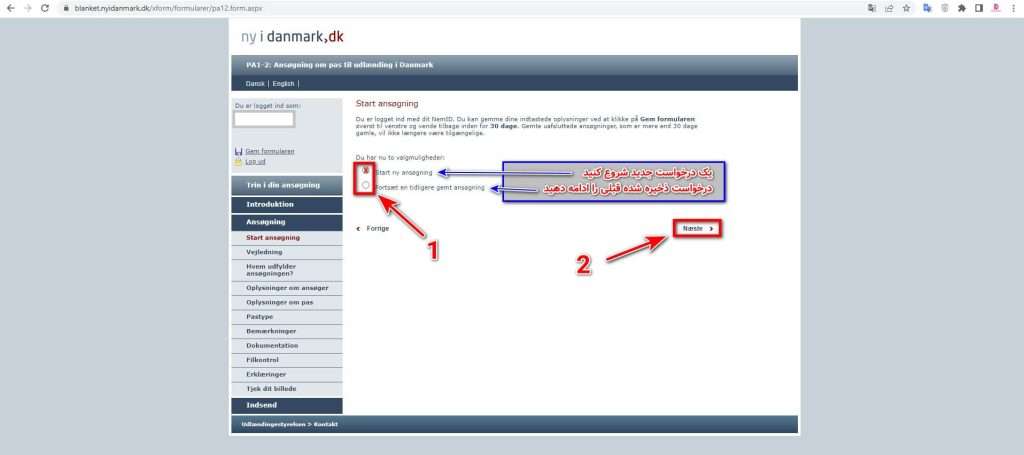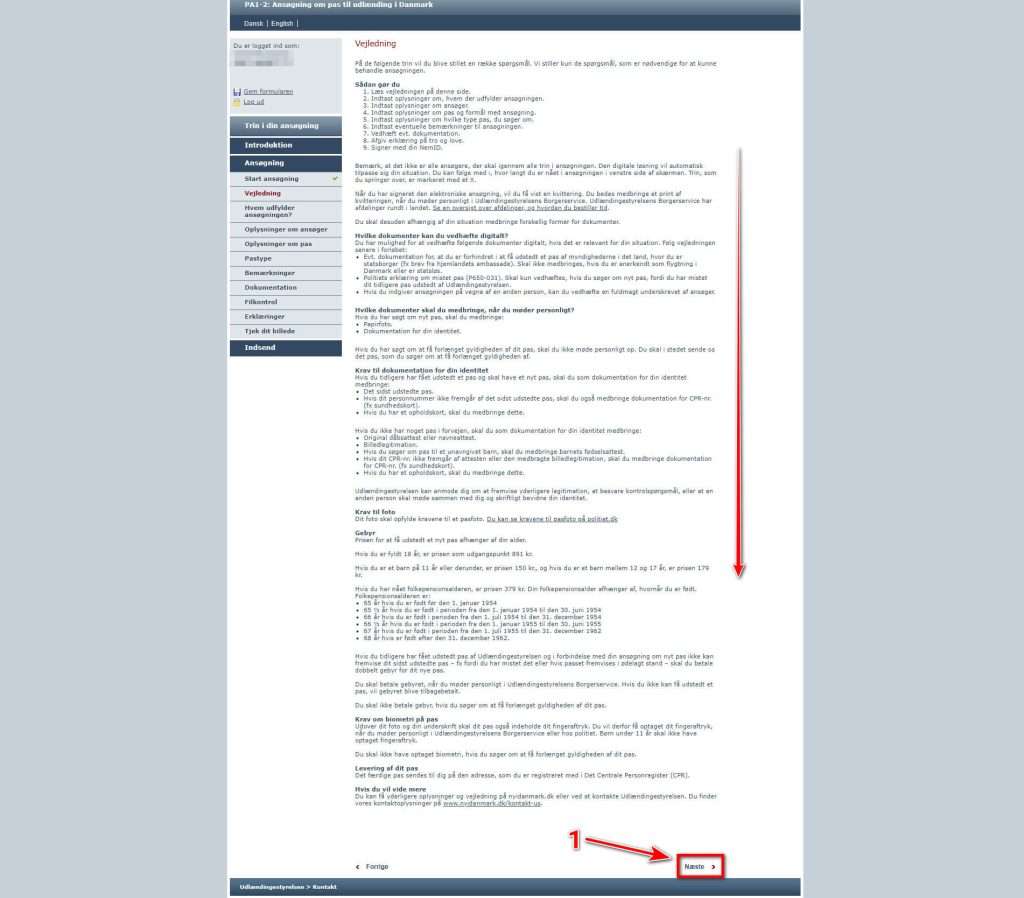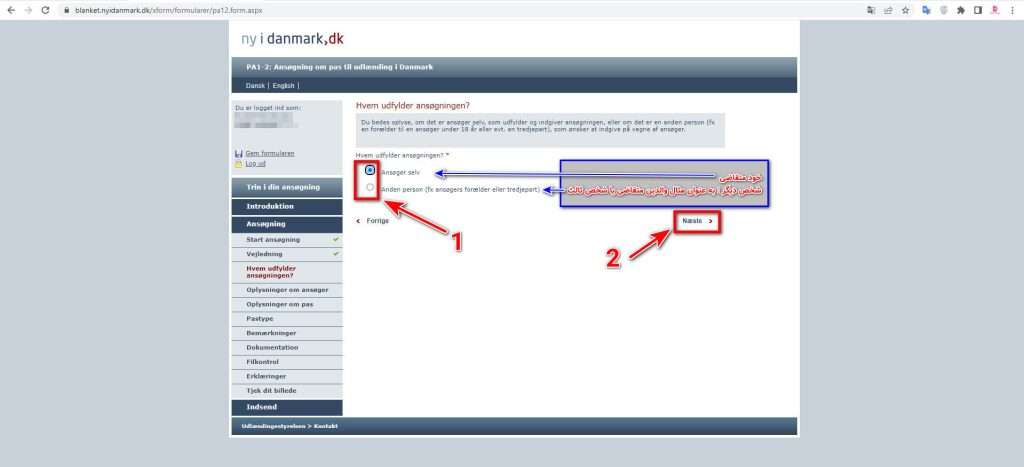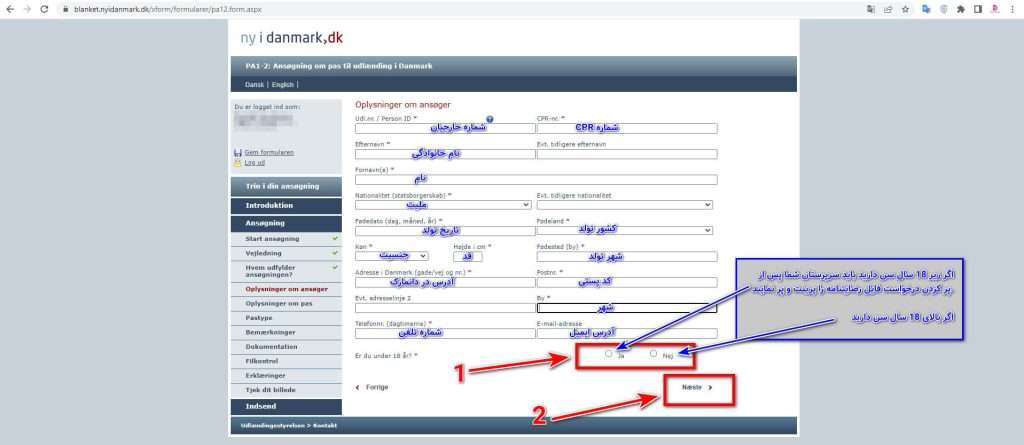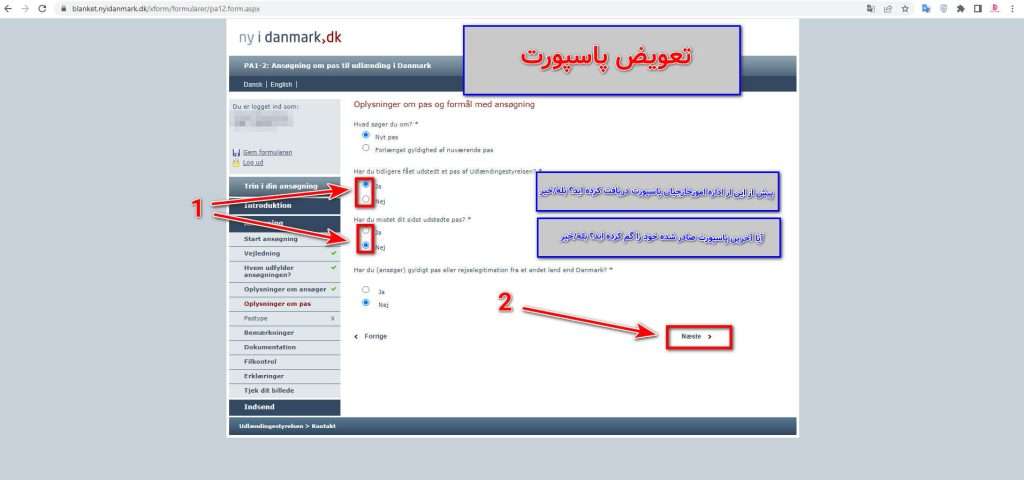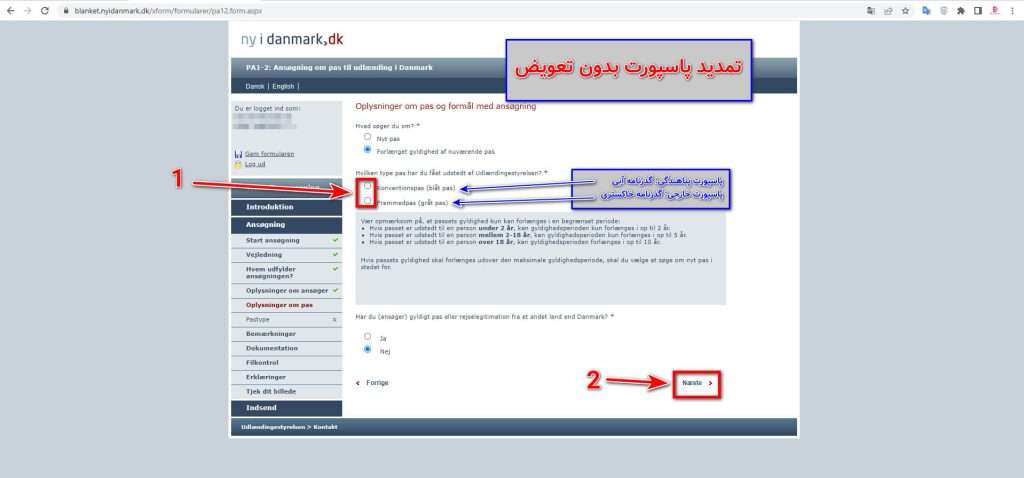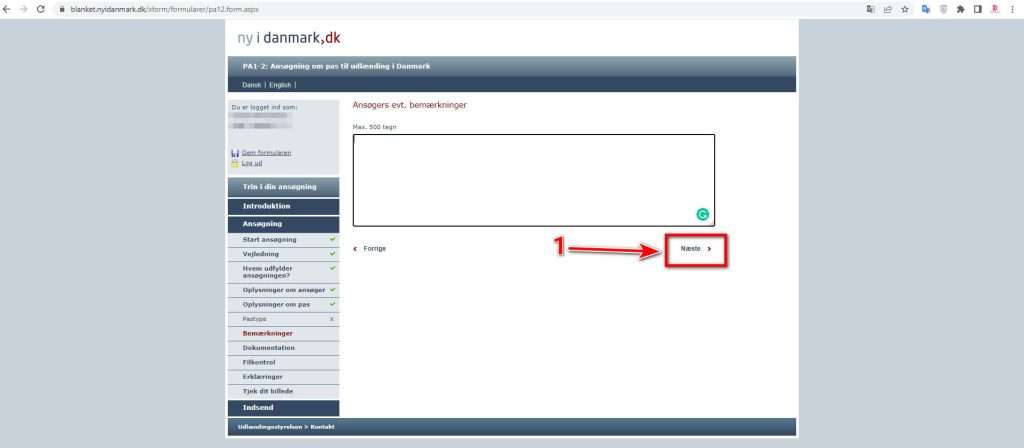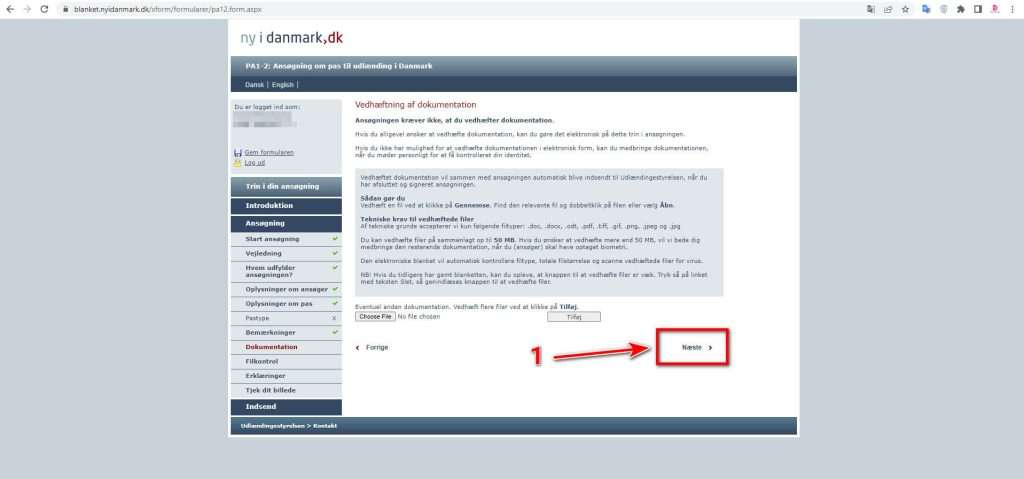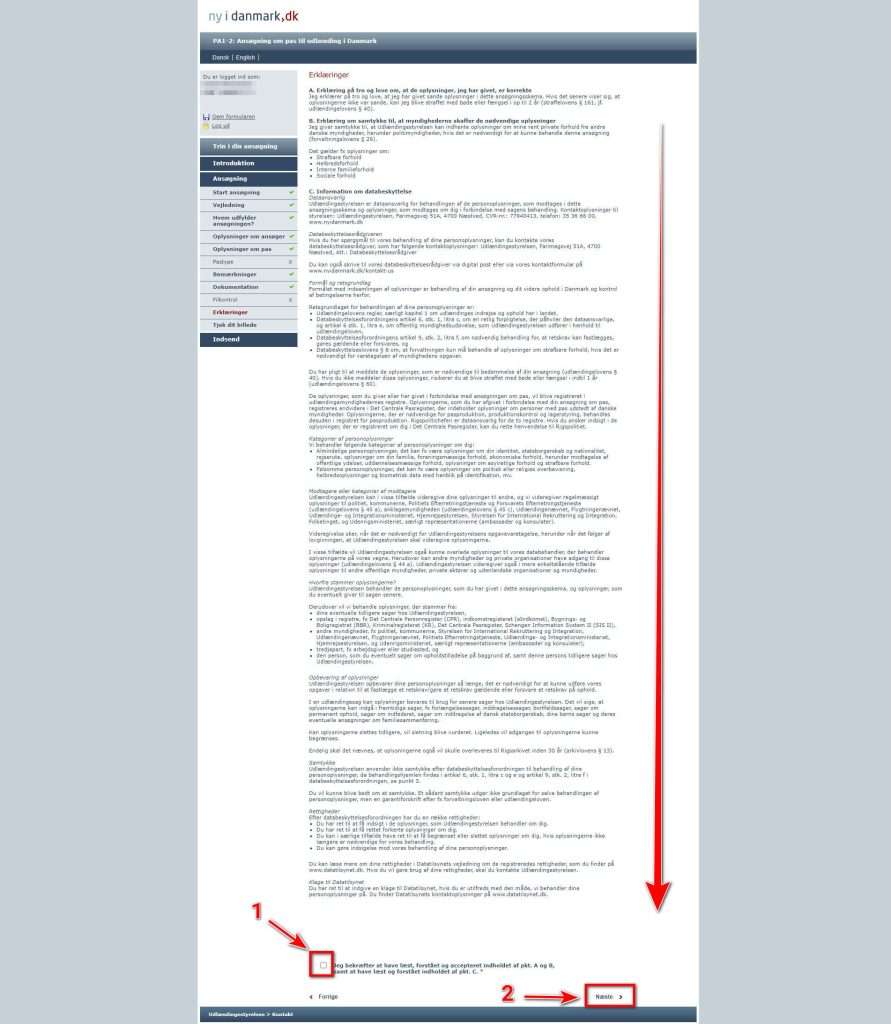1. Age over 18 years
1. You must be over 18 years old
You must be over 18 years old to get a permanent residence permit.
2. Continuation of the current residence permit
2. You must still meet the requirements of your current residence permit
You must continue to fulfill the continuing conditions set for your current residence permit.
You should also note that when the Danish Immigration Service makes a decision about you, having a residence in Denmark is a necessary condition for obtaining a permanent residence permit.
If you are applying for permanent residence as a married couple, your spouse in Denmark must also meet certain current conditions for your residence permit and fill out part of the application.
3. You must have lived legally in Denmark for at least 8 years.
3. You must have lived legally in Denmark for at least 8 years.
You must have lived legally in Denmark for at least 8 years continuously and during that time have a residence permit in accordance with sections 7-9 f, 9 i-9 n or section 9 p or section 9 q, sub-section of the Act You have been an immigrant. .
2 or 3 (residence permit issued based on family reunification, asylum, study or work, etc.).
From your current residence permit, it is clear under which legal provision (section) it was granted.
In certain cases, you can after at least 4 years of legal residence
Get a permanent residence permit without interruption in Denmark.
If you have a residence permit according to the Law on Temporary Residence Permits for Displaced Persons from Ukraine (Special Law), you do not meet the residence requirements and your residence cannot be included in the calculation of 8 years of residence.
8 years of legal residence
The basic condition for obtaining permanent residence is that at the time of decision on permanent residence, at least 8 years of legal residence
Have an uninterrupted time in Denmark.
4 years of legal residence
If, in addition to the basic conditions for permanent residence permit, you also have all 4 additional conditions, if at the time of decision on at least 4 years of legal residence
Stay in Denmark without interruption, you can get a permanent residence permit.
Permanent residence is made.
One or more reasons for stay
You can fulfill the requirement of 8 years of residence and in certain cases 4 years of residence by having a residence permit on the same basis for the entire period, for example as a spouse in family reunification.
You can also fulfill this condition by holding several residence permits for different reasons during the course, for example first as an au pair and then as a family member.
If you have had a residence permit based on multiple marriages or cohabitations, you only meet the residence requirements if you have resided for at least 8 years, in certain cases, 4 years, based on the last marriage/relationship.
If you get divorced and then remarry (or enter into a new cohabitation relationship) and get a new residence permit based on the new marriage/cohabitation, the calculation of your legal residence starts again.
4. You must not have committed certain types of crimes
4. You must not have committed certain types of crimes
You must continue to fulfil the continuing conditions set for your current residence permit.
You should also note that when the Danish Immigration Service makes a decision about you, having a residence in Denmark is a necessary condition for obtaining a permanent residence permit.
If you are applying for permanent residence as a married couple, your spouse in Denmark must also meet certain current conditions for your residence permit and fill out part of the application.
5. You must not have outstanding debt to the public sector
5. You must not have outstanding debt to the public sector
You must not have outstanding debt to the public sector. The debt becomes due when the period during which the public is entitled to pay the debt or part of it has passed.
The following types of debts are considered as debts to people that you should not have if you want to get a permanent residence permit (the list is complete):
- Benefits subject to repayment under the Social Services Act or the Active Social Policy Act (such as overpaid cash assistance).
- Child allowance is paid in advance.
- Kindergarten payment
- Reimbursement of overpaid housing facilities.
- Subsidized housing loan repayment.
- Taxes and duties, unless the outstanding taxes or duties are due to circumstances beyond your control.
Other debts, such as student loans or debts owed to banks or credit unions, are not the types of debt that will disqualify you from receiving permanent residency.
deferment
If the debt is forgiven, you can still get a permanent residence permit. However, the condition is that the debt does not exceed 128,081.63 kroner (2023 level).
Deferment means that the creditor (government sector) allows the debtor (you) to wait until later than the original due date to pay the debt. For example, you can get a deferment by paying a debt to SKAT.
In case of doubt, the municipality, SKAT or Udbetaling Danmark can inform you whether a grace period has been granted with the debt.
Installment plan
If you have outstanding debt to the public sector, you will not be able to get a permanent residence permit, regardless of whether an installment plan has been agreed.
The installment plan means that instead of paying your debt all at once, you pay your debt in installments according to the agreement with the government authorities. For example, you pay SEK 500 per month for 3 years.
If you succeed in repaying the debt
If you have an outstanding debt to the public sector and after applying, you have succeeded in repaying all of your debt, but before the Danish Immigration Service decides on this, you must provide documents showing that you no longer owe the public sector. .
6. You must not have received public assistance under the Assets Act or the Consolidation Act
6. You must not have received public assistance under the Assets Act or the Consolidation Act
You must not have received certain types of public assistance in the last 4 years before the application and until the decision on the permanent residence permit.
The determining factor in assessing whether you have received state assistance is whether the benefits received were paid in accordance with the Act on Active Social Policy (Act on Active Social Policy) or the Act on Integration (Act on the Integration of Foreigners). in Denmark). If you have received benefits under one of these rules, you can usually only get a permanent residence permit after 4 years have passed since you received the most recent benefits.
Example: If you received cash assistance by July 1, 2014, you will first meet the condition of not receiving government assistance on July 1, 2018.
However, there are certain benefits that do not prevent you from obtaining a permanent residence permit.
Read more about which services to see if you can get a permanent residence permit
Especially in the case of supplementary cash assistance
If your spouse has received cash assistance for a period, you may have received top-up cash assistance during the same period. Therefore, you need to know whether your spouse has received cash assistance in the last 4 years before the time of application or during the processing of the case.
If so, it may mean that you received top-up cash assistance in the same period. This can lead to your permanent residence permit being rejected for this reason. If you are in doubt whether you have received additional cash assistance or not, you can contact your municipality.
7. You must accept the declaration of residence and self-sufficiency
7. You must accept the declaration of residence and self-sufficiency
You must accept the Declaration of Residence and Self-Sufficiency. This declaration is included in the digital application solution and in the application forms.
You can also find the declaration of residence and self-support on the website of the Ministry of Immigration and Integration.
8. You have to keep working
8. You have to keep working
You must be at your workplace when the Danish Immigration Service makes a decision on the case.
You are eligible to continue working if, at the time of decision on permanent residence permit, you:
- An employee is in an open position that has not been terminated;
- can prove in another way that you expect to be employed in the future, for example if you are an employee in a permanent position where a certain part of the employment period still remains, or
- is self-employed
Example: If you are employed in a certain position that is about to expire, you can prove that you will continue to work, for example by attaching a new employment contract or a statement from the employer that your employment is expected to be renewed.
It is not a requirement that your current job be a full-time job, if the basic job requirements are otherwise. However, you must work at least 15 hours per week.
Read more about basic working conditions
If at the time of the decision on the permanent residence permit, you do not have the conditions to continue working:
- is employed in a job with a wage subsidy,
- is in unpaid work,
- are under training, including in an internship or other work that is part of training;
- Works as a temp in a temporary agency
- Work less than 15 hours per week,
- works for a company that is in liquidation, compulsory liquidation, suspension of payments or bankruptcy, or
- Is a self-employed trader who is in liquidation, compulsory liquidation, has given notice of suspension of payments or is in bankruptcy.
9. You must not have actively objected to the clarification of your identity
9. You must not have actively objected to the clarification of your identity
You must not have actively objected to the clarification of your identity in connection with your application for a residence permit or extension of your residence permit.
This condition applies if you submitted your first residence permit application on or after January 1, 2018.
For example, if you have provided false identification, such as a passport or birth certificate, or have provided someone else’s identification, you may be considered to have actively objected to the disclosure of your identity.
This may also be the case if you have misrepresented your name, date of birth, country of birth or citizenship and these are clarified later in the case by you or the immigration authorities through control questions. , experiments, research, etc
If there are very specific reasons for it, you can get a permanent residence permit, even if you objected to clarifying your identity.
10. You must have passed Danish test 2
10. You must have passed Danish test 2
You must have passed the Danish language test 2 or the Danish test at an equivalent level or higher.
See a list of Danish exams at a level similar to or higher than Prøve i Dansk 2
Additional requirements in the Danish language exam 3
If you have passed the Danish language test 3 or the Danish test at the same level or higher, you can fulfill one of the 4 additional requirements.
Read more about the additional requirements and see the list of Danish exams that have a level similar to or higher than Prøve i Dansk 3 below.
11. You must have been at work for at least 3 years and 6 months
11. You must have been at work for at least 3 years and 6 months
You must have been in normal full-time work or self-employment in Denmark for at least 3 years and 6 months in the last 4 years before the decision on a permanent residence permit was made.
That is, in the last 4 years, you must have been in a job for 3 years and 6 months to be included in the calculation.
You do not have to have worked for 3 years and 6 months in a row. This condition can be met, for example, if you have been in full-time work for 1 year, then unemployed for 6 months and subsequently in full-time work for 2 years and 6 months.
what is a typical full-time job?
Regular work means that the work must be free of government subsidies, such as wage subsidies. In addition, the work must be remunerated under an applicable collective agreement or performed under customary wage and working conditions.
Full-time work is work with the average working time in this country of at least 30 hours per week, equivalent to at least 120 hours per month.
If you have worked in several places at the same time, you qualify for regular full-time work if the total weekly working time is at least 30 hours, equivalent to at least 120 hours per month.
The following are included as normal work:
- Paid work with a weekly working time of at least 30 hours, equivalent to at least 120 hours per month.
- Be self-employed if the work is of a scope that can be considered equivalent to full-time paid work.
- Work as a supporting spouse in self-employment if the work is taxable and of a scope that is equivalent to full-time salaried work.
- Periods of absence due to illness, holidays, care and maternity days, etc. within the framework of the employment relationship.
- Flexijob, according to the rules of the Active Employment Efforts Act, regardless of whether the employer receives a public subsidy or not. Flex jobs count as full-time work regardless of the actual number of hours.
The following are not considered normal tasks:
- Periods of unemployment provision (also unemployment provision).
- Unpaid work.
- Work with a wage subsidy.
- Hiring in job rotation.
- Training, including internships or other work that is part of training.
- Work periods of less than 30 hours per week.
Read more about what can count as regular full-time work when applying for permanent residence
additional condition of working for at least 4 years
If you have been employed for at least 4 years in the last 4 years and 6 months, you can meet one of 4 additional requirements.
Read more about additional conditions at work



